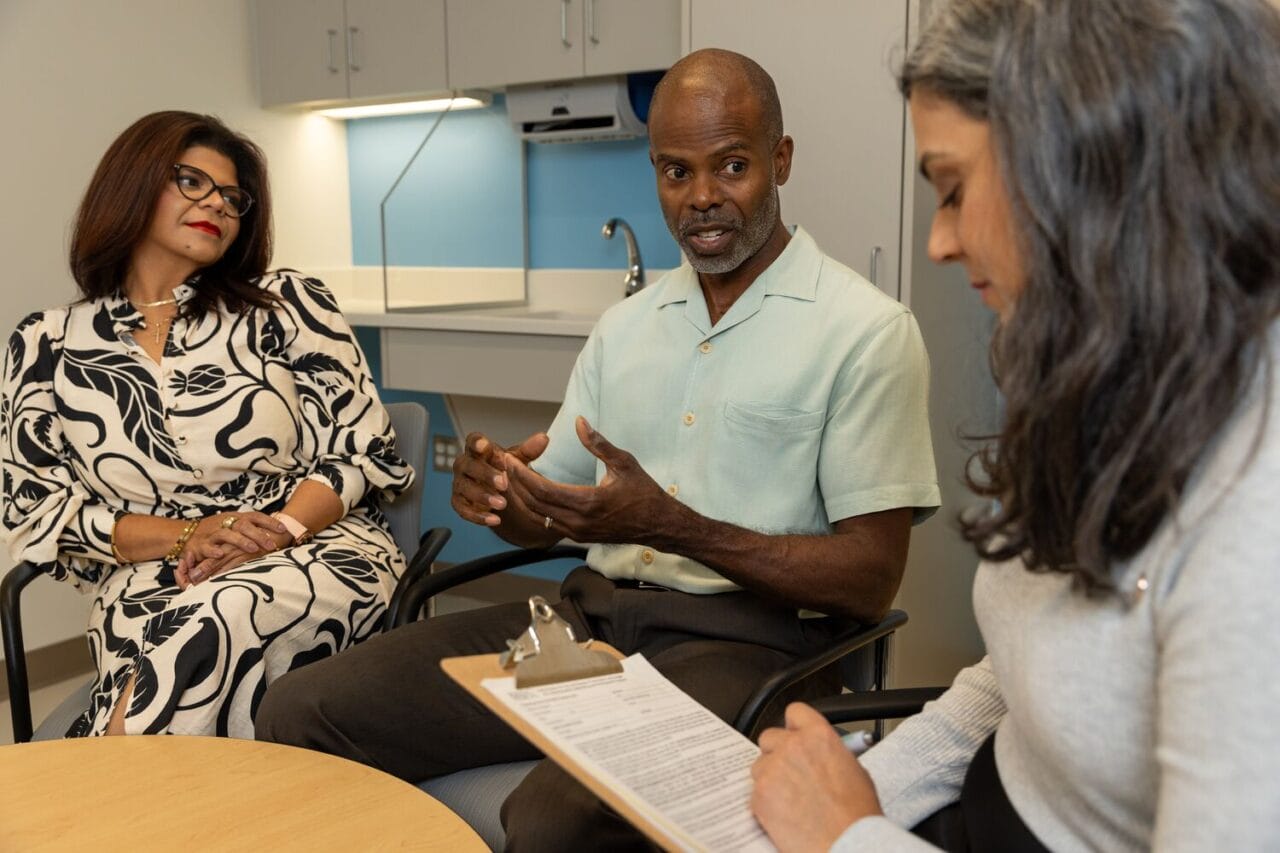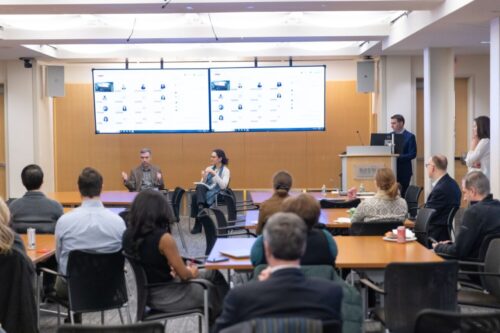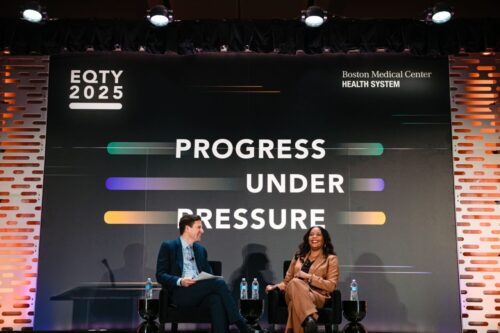New Research Course Empowers Medical Interpreters and Patients Alike
November 15, 2024
By Meryl Bailey

Jeff Fernandes, Boston Medical Center
From left to right: Alegna Zavatti, CHI, Director of Interpreter Services, Cynthia Camacho, medical interpreter, Julien Dedier, MD, MPH, Director of Training
The program aims to promote agency for limited-English proficient patients participating in clinical trials.
Engaging diverse communities around clinical research is a growing priority in the pursuit of health equity. Yet tackling language barriers in research trials remains a significant challenge for researchers. In a study of major U.S. medical journals, it was found that 40% of researchers excluded non-English speaking individuals from their medical research, citing difficulties in translating documents and problems with recruiting, training, and paying bilingual staff, for the lack of inclusion. To address this challenge, Boston Medical Center Health System (BMCHS) is creating a new training course for medical interpreters to help reduce barriers to clinical trials for patients with limited English proficiency.
The free accredited course aims to strengthen interpreters’ familiarity and expertise of research terminology and bolster understanding of medical research regulations, patient rights, and the complexities of medical mistrust in marginalized communities. Funded by the NIH Community the new training aims to help interpreters empower patients with limited English proficiency throughout the clinical research process, with an emphasis on the recruitment and consent process.
A patient-first approach to interpretation
BMCHS’s new Interpreting for Medical Research course provides a comprehensive understanding of the challenges navigating clinical trials, using a patient-centric lens. Holistic in its design, the course curriculum not only covers research study types and terminology; it covers topics such as the history of medical mistrust, regulatory milestones that define modern ethical research principles, and elements of the informed consent process.
“Medical interpreters working at hospitals are responsible for the majority of research interpretation that occurs, yet in most cases they have received no formal training on this complex interaction,” explains Julien Dedier, MD, MPH, a BMCHS primary care physician and director of the new training. “This course provides context for interpreters to enable them to partner more equally with investigators and be more assertive advocates for their patients.”
Cynthia Camacho, a medical interpreter at BMC since 2020, is familiar with the challenges of guiding patients through clinical trial recruitment. The interactions take much longer, and patients are often concerned about their obligations as study participants. Camacho appreciates how the new course emphasizes cultural differences and the vital role interpreters play in delivering messages that account for context, connect culturally, and build agency for the patient.
“We are not translators, we are interpreters. Sometimes if you translate verbatim, the meaning is lost,” she explains. “I remember once an oncologist told me that a patient had a lump in her breast that looked like a peach pit. I interpreted peach pit to another fruit the patient was familiar with. The oncologist was puzzled that I had changed the message. I explained that the patient was from a country where she hadn’t seen a peach…You have to be able to level the language.”
“Medical interpreters working at hospitals are responsible for the majority of research interpretation that occurs, yet in most cases they have received no formal training on this complex interaction. This course provides context for interpreters to enable them to partner more equally with investigators and be more assertive advocates for their patients.”
Julien Dedier, MD, MPH, a BMCHS primary care physician, training director
Expanding impact with an online course
The BMCHS course is broken into three 90-minute sessions that are accessible both live and virtually. The sessions include breakout groups where interpreters can openly discuss their experiences and ways to better partner with investigators and patients to facilitate conversations about clinical trial participation. The live course is being administered to interpreter groups at Boston Medical Center (BMC), Tufts, and Dana Farber Cancer Center.
However, looking for ways to expand its impact, BMCHS has partnered with the CCHI to develop a two-hour Interpreting Medical Research online course that is available nationwide. The online course is free, and interpreters receive a continuing education unit credit for their participation. The course comes with a downloadable glossary that translates common research terms into Spanish, Haitian Creole, Cantonese, Mandarin, and Arabic. To date, over 200 interpreters have taken the course.
“This online course is really directly addressing the education gap for research interpretation,” explains Dedier. “We plan to do a national survey through CCHI to get a fuller understanding of who is doing the interpretation, how comfortable they feel to do it, and what additional training they would like to see to better equip them to feel confident interpreting for medical research.”
By partnering with CCHI, the largest accrediting body for medical interpreters, Dedier and his team hope to reach hundreds and thousands of people. As more people participate, the team can better understand the national landscape of interpretation for research—of which little is known.
Empowering patients in research
Dedier and his team will continue to develop educational content that further supports research recruitment interactions. While this work hopes to increase diversity in clinical trials, Dedier emphasizes that the main goal is to promote interpreter interactions that support comprehension and agency for the patient.
“What we want is to make sure that the patient fully understands the study and its potential risks and benefits and enrolls for the right reasons,” he says. “From a research standpoint, our long-term goal is to confirm that our training supports better outcomes for both patients and research.”


